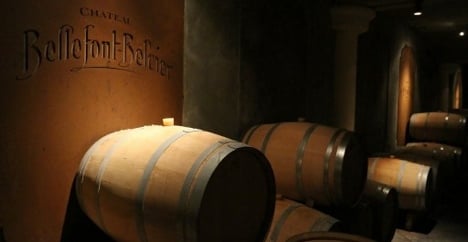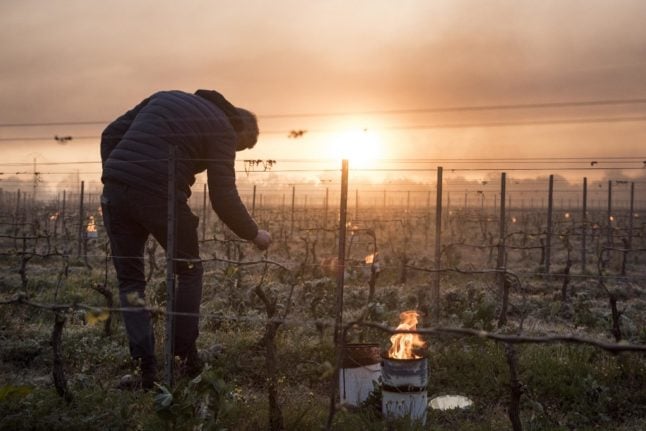The property is the first of its rank — Grand Cru Classé (classified great growth) — to be acquired in what has been a wave of Chinese investment in the Bordeaux region.
The new owner is a 45-year-old industrialist with assets in the iron sector who has already diversified into the wine importing business.
He met the chateau's employees on Friday and has since returned to China.
Chinese investors have acquired around 30 lower-ranked properties in Bordeaux (the larger region that includes Saint Emilion) in the last two years and this year has seen China become the region's biggest export market in terms of volume.
So far, Chinese investment has not been controversial in a region with a long tradition of foreign ownership of wine estates.
In contrast, the acquisition by a Chinese buyer of Château Gevrey-Chambertin in Burgundy earlier this year triggered a major row, with local winemakers and far-right politicians claiming the country's heritage was being sold.
"This is a first (for Bordeaux), we'll see how people react," said Hervé Olivier, regional director of SAFER, the government agency that oversees rural land development.
Georges Haushalter, the president of the Bordeax Wine Council, does not expect a backlash.
"We have the Japanese at Château Beychevelle and Château Lagrange and no one reacts against them," he said.
"They have done a very good job."
Bellefont-Belcier, which had been on the market for a number of years, has 13 hectares of vines and total land of 20 hectares.
A source close to the transaction said the final price was between 1.5 and two million euros per hectare of vines.
The sale had been in negotiation for a number of months, but the price was not finalised until after the announcement in September of a once-in-a-decade re-classification of Saint Emilion wines, which confirmed the estate's Grand Cru status.
"The classification played an enormous role," said a spokesman from Franck Lagorce Conseil, the agency which negotiated the deal.
Without the classification, "the price would not have been the same."
Olivier said another 10 chateaux could be sold to Chinese buyers by the end of the year if bureaucratic obstacles can be overcome.
"These are dossiers that are lagging," he said.
"Since this past summer, there is manifestly a difficulty for the Chinese . . . to get their money out of China," Olivier said.
"So there are plenty of dossiers that are pushed back."
Chinese investors in Bordeaux are primarily industrialists with diverse business interests including real estate and tourism, according to Olivier.
"They do business in everything," he said.
"Some are already in the wine business, some are in the restaurant business.
"Sometimes they are just wine lovers who do it for their own pleasure and they buy a chateau in Bordeaux."
Until now, Chinese investors have focused on relatively obscure chateaux in modest appellations, the properties frequently having languished on the market for some time with little chance of a bidding war.
For this reason, according to Olivier, Chinese investors have not put pressure on vineyard land prices.
"They don't make the prices shoot up like in Gevrey Chambertin," he said.
"Prices have remained stable."
The controversy in Burgundy was fuelled by the fact that Macau gambling executive Louis Ng outbid a group of local investors.
Inflation in land prices is a sensitive issue because of the impact it has on inheritance tax and, as a consequence, the ability of families to pass vineyards down to the next generation.
"Bordeaux vineyards have always been open to foreign investors," Olivier said.
"There have been trends – the English, Belgians, Americans, Japanese, insurance companies, banks, which have purchased chateaux.
Today, it's the Chinese.
"What is different is that it's in such short period," Olivier said.
"They've purchased 30 estates in two years. That's something."



 Please whitelist us to continue reading.
Please whitelist us to continue reading.
Member comments